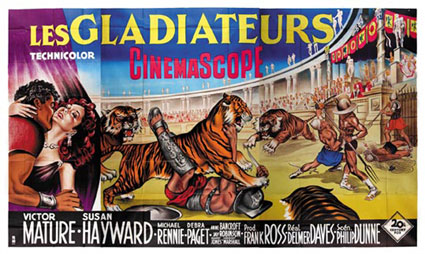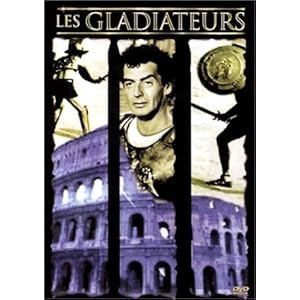This article is the third and final instalment in the Golden Age(s) series.
When we last left Golden Age writers, they were questioning - and in some cases, rejecting - their old certitudes. Dictatorships on the rise in Europe and a new war threatening made the detective story's triumphalist ethos seem increasingly shaky and artificial. Moreover, there were growing signs of impatience about the rigidity of the "rules" and a desire for a greater freedom. Newcomers displayed a more flippant, skeptical and in some cases hostile attitude to the conventions of the genre whereas the elders either tried new ways or called it quits. All this leading to and culminating with And Then They Were None, which was both a kind of apotheosis of the genre and a hint of things to come. Late Golden Age sees those trends deepen, translating by the end of the decade into a durable parting of ways between the American and British schools.
While the formal detective story remained dominant throughout the war and a major force afterwards, it was no longer the only player on the field. Moreover, it experienced some drastic changes though in a comparatively mild fashion. The cases of Ellery Queen and Patrick Quentin are very representative of the new directions taken by the genre.
Queen's earliest works were superior imitations of the then-reigning king of American detective fiction, S.S. Van Dine. By the mid-thirties, however, they had become tired with challenges to the reader and from Halfway House (1936) progressively ditched most of their vandinian mannerisms with Ellery for instance changing from a brainy snob into a fallible and somewhat sentimental fellow, leading to that turning point, Calamity Town (1942) What makes this book important is not its plotting (adequate, nothing more) but that Queen, that most baroque of all detective writers, finally discovers America. The setting is an ordinary American little town, Wrightsville, and the characters are not that spectacular either - they're ordinary people, a brand that mysteries tended to neglect at the time (and still do to some extent, but that's a subject for another article) Queen did not transform overnight into a naturalist writer - some of their wildest plots were still ahead of them - but most of their later work kept that "realistic" approach to setting and character.
Patrick Quentin's trajectory is an even more radical one as they proceeded and succeeded to ditch the cerebral element out of the detective story - the Puzzle books featuring Peter & Iris Duluth, while keeping all of the trappings and surprises of the genre, take on a wholly different direction. The Duluths are no dilettante detectives toying with crime; they are personally (and in most cases, dangerously) involved in the cases. By taking the focus away from those who solve the puzzle to those who are embedded in it, Quentin plays a decisive part in the rise of a new genre: psychological suspense.
Though I chose American (or in Quentin's case, America-based) examples, similar trends were at work in Britain where the flamboyant amateur genius of the previous period slowly made way for more down-to-earth characters, most often professional detectives or lawyers. The setting changed as well, becoming more urban and, yes, democratic. The move away from country houses and upper classes to great cities and people of the common had actually begun in the thirties, but only with the war did it became a heavy trend. From Christianna Brand to Michael Gilbert nearly all of the British talents to emerge during the period are modernists opting for daily-life settings and casting people of the law as heroes.
Where America and Britain diverged was on what new clothings the genre took. The American school, which had always been more flexible, readily embraced psychological suspense as a way to continue the detective story by other means. The new genre allowed for all the shenanigans of the old while being much more plastic and better-suited to the post-war reader's taste for fast-paced, thrilling narratives. Hardboiled fiction, too, showed interest in some "traditional" techniques and themes.
Both genres were marginal in Britain, and remained durably so. Besides, most British authors were quite happy with the basic structure of the detective story; they updated it stylistically, sociologically and - we shall see - philosophically and politically, but left the fundamentals intact. However, a sizeable minority led by increasingly influential newcomer Julian Symons retained Iles and Hull's lessons and decided to either do away with the puzzle or at least downplay it considerably in favor of psychology and social comment. Detective stories rebranded as police procedurals on one hand and "crime novels" on the other would be the dominant players on the British field for the next four decades, only marginally threatened by spy novels and thrillers.
Changes I've discussed so far were for the most part of a formalistic nature, affecting how detective stories were written. The deepest changes at work, however, were of an intellectual order. Detective story up to the late Thirties had been a fundamentally elitist genre, not only sociologically but philosophically, putting society's security in the hands of superminds unconcerned with procedures and the subtleties of law. It also displayed a strong metaphysic optimism, assuming that the world was an ordered place and crime a momentary and remediable disruption of said order. However, beginning in the years immediately preceding the war, some writers began to challenge the dominant worldview. The rise of the professional detectiveand the general trend towards the humanization of the detective figure, which I've discussed earlier, are the most visible symptoms of this change of mood, but more subtle ones could also be observed, such as the greater attention paid to secondary characters not just as suspects or sidekicks but as human beings; the growing skepticism of existing social order; the willingness to mock the rules of the genre; the realization that bringing a solution to the problem doesn't mean that everything will be fine again.
The book with which we'll end this survey and this series typifies all of these changes. On the outside, Cyril Hare's An English Murder is the uber-traditional mystery, with all of its components straight out of the Golden Age textbook: a country house, gentry people, murder, amateur detective. What makes it different is its outlook. The class-system is in tatters and survives paradoxically because of the servants' dogged refusal to let it go, the gentry is more to be pitied or ridiculed than admired and suffers a particularly nasty blow in the end, the new ruling classes are not better than the old - and the amateur sleuth solving it all is a foreigner who is one of only a handful decent people in the book and happens to know English law and history better than the natives. That the book is in many ways a remake of Styles adds to its subversive power. We'll never know for sure what were Hare's intentions in writing it, but as an eulogy for an era it was quite perfect.


